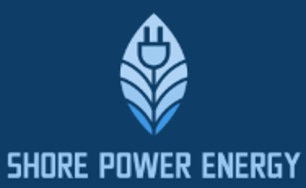What is Onshore Power Supply (OPS)?
Quick definition
Ever heard of shore power or cold ironing? That’s what Onshore Power Supply (OPS) is all about! Instead of ships burning fuel while they’re docked, they plug into the port’s electrical grid. It’s like giving ships a giant, eco-friendly charger—cutting pollution, reducing noise, and saving money all at once.


Why Does OPS Matter?
✅ Cleaner Air – Less smoke, fewer emissions, and a healthier environment.
✅ Lower Costs – Shipowners save on fuel while staying compliant with regulations.
✅ Quieter Ports – No more constant engine hum—just smooth, silent power.
✅ Sustainable Shipping – Reducing CO₂ and other greenhouse gases makes shipping greener.
✅ Better for Everyone – Less pollution means happier port communities and healthier workers.
OPS is a game-changer for ports, shipowners, and the environment—a win-win for everyone! 🚢⚡
Why Should Ports and Shipowners Invest in OPS?
💰 Saves Money – Electricity can be cheaper than fuel, especially with rising fuel costs.
🌎 Cuts Emissions – A big step toward decarbonizing the shipping industry.
📢 Regulations Are Coming – The EU, IMO, and other authorities are pushing for OPS adoption.
🔇 Less Noise = Fewer Complaints – Ports can improve relationships with local communities.
🚢 Future-Proofing – OPS makes ports more attractive for eco-conscious shipping companies.
Pleasantview Gem Inn
Not just pleasant on the outside, our Pleasantview Gem Inn properties are especially popular among families. With underground parking and floor-to-ceiling windows, there's no shortage of natural light or space.


